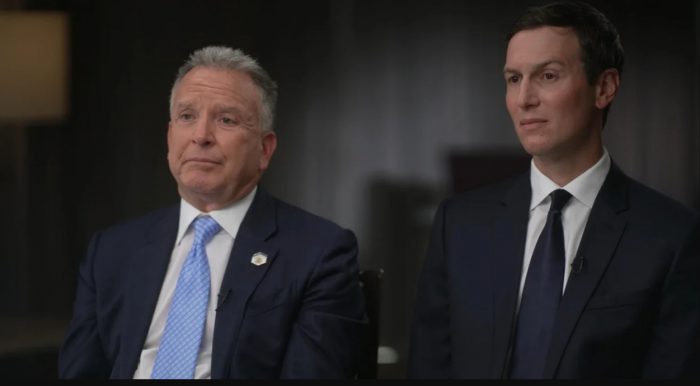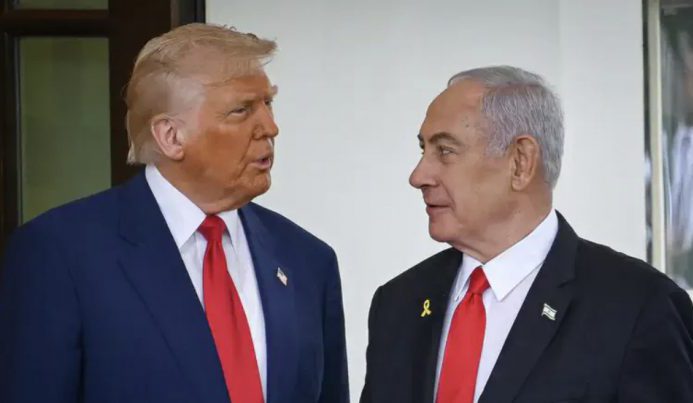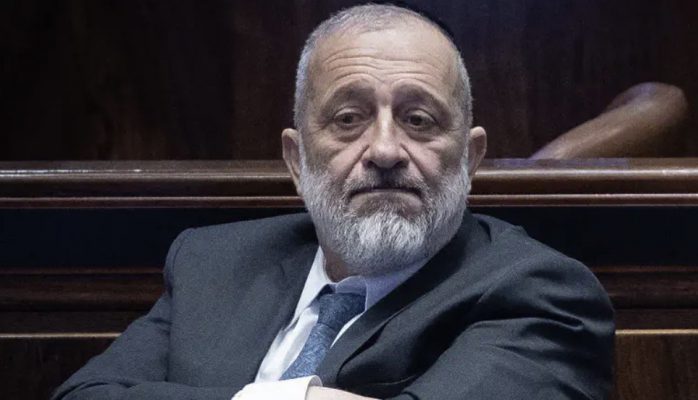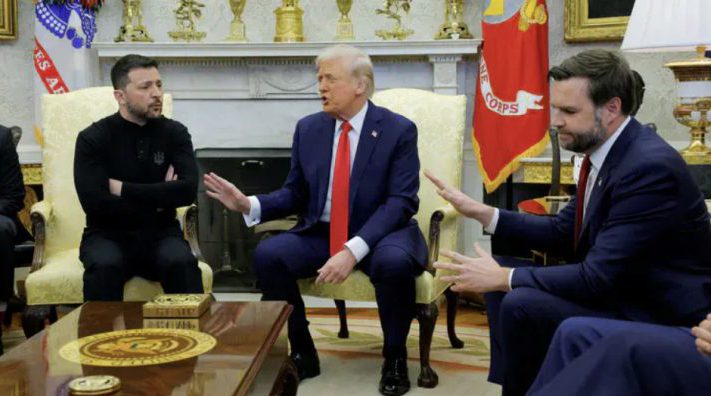In a candid 60 Minutes interview, Jared Kushner and Steve Witkoff unveil how President Trump’s pressure, diplomacy, and Netanyahu’s pivotal apology secured the Gaza ceasefire.
The world watched on Sunday night as CBS’ “60 Minutes” aired a rare, in-depth interview with Jared Kushner and Steve Witkoff—President Donald Trump’s top envoys behind the historic Israel-Hamas ceasefire. Speaking with journalist Lesley Stahl, the two senior negotiators revealed the behind-the-scenes intensity, human moments, and high-stakes strategy that brought a fragile peace to one of the world’s most explosive conflicts.
⚖️ Trump’s Ceasefire Vision: Security First, Humanity Next
“The biggest message we’ve tried to convey to Israeli leadership,” Kushner said, “is that now that the war is over, if you want to integrate Israel with the broader Middle East, you must help the Palestinian people thrive.”
He clarified that the ceasefire was never meant to reward Hamas, but to create conditions where terror could not return. “Hamas right now is doing exactly what you’d expect a terrorist organization to do—trying to reconstitute,” Kushner said. “The success or failure of this will depend on whether Israel and the international mechanism can build a viable alternative. If they succeed, Hamas will fail.”
💣 “Hamas Must Disarm—Or We Will Do It for Them”
Asked about President Trump’s now-famous line that “Hamas must disarm, or we will disarm them—perhaps violently”, Kushner firmly rejected speculation of U.S. troop involvement.
“That’s not the intent,” he said. “The President wants to see it done, and he’s fully committed to ensuring that it gets completed.”
Instead, he explained, a new International Stabilization Force will train a local Palestinian police force to maintain security in Gaza:
“No reconstruction money goes in until terror-free zones exist—because no one wants to rebuild only to see it destroyed again by terrorism.”
💔 A Human Moment Amid Hostility
One of the most poignant moments in the interview came from Witkoff’s recollection of a tense meeting in Egypt with Hamas leader Khalil al-Hayya—whose son was killed in an Israeli strike in Doha.
“We expressed our condolences,” Witkoff said softly. “I told him I had lost a son too. Suddenly, the room shifted—it wasn’t a negotiation between enemies, it was two fathers in grief.”
Kushner added, “You could see it—two hardened men, both scarred by loss, suddenly revealing humanity. It turned from diplomacy to something real.”
🧩 Convincing Hamas: Turning Hostages from Assets to Liabilities
The negotiations in Cairo and Doha, Kushner said, revolved around one goal: “Get the hostages home and make Hamas realize they were no longer assets.”
Working alongside Qatari, Turkish, and Egyptian intermediaries, the U.S. envoys used coordinated diplomatic pressure to make it clear that holding hostages was isolating Hamas internationally.
“At the end of the day,” Kushner recalled, “we wanted the hostages out, a ceasefire that would hold, and humanitarian aid to flow. Both sides wanted the same outcome—they just needed help getting there.”
🕊️ Netanyahu’s Apology: The Turning Point
The interview also shed light on one of the most controversial moments in the process—Prime Minister Benjamin Netanyahu’s apology to Qatar after the Israeli airstrike in Doha.
Witkoff pushed back on claims that the apology was forced:
“I wouldn’t call it forced. It was pivotal. It was the linchpin that got us to the next place. The president himself said, ‘People apologize—I apologize sometimes.’”
Kushner echoed that sentiment:
“President Trump said in his Knesset speech, ‘Bibi’s very tough, but that’s what makes him great.’ He knew what needed to be done. He met the moment and did what it took to make peace.”
The apology opened the door for an unprecedented trilateral mechanism linking Israel, Qatar, and Egypt—a framework that could reshape Middle East diplomacy for years.
🇮🇱 Trump’s Doctrine of Power and Pragmatism
Kushner and Witkoff both emphasized that President Trump personally directed the process, stepping in when necessary to balance Israeli restraint with regional diplomacy.
“When the strike in Qatar happened,” Kushner said, “the President felt Israel was getting a little out of control and needed to be reminded of its long-term interests.”
Yet, both envoys underscored Trump’s ironclad support for Israel’s security, even as he demanded diplomatic discipline.
“We will not allow the terms of this deal to be violated by any party,” Kushner declared. “Both sides will be treated fairly—but no one will be allowed to play games.”
🌍 From Ceasefire to Future Alliance
Kushner concluded with cautious optimism:
“This is the first formal mechanism between Israel and Qatar. Over time, they could actually become incredible allies in advancing the region.”
Witkoff agreed: “The apology needed to happen. The deal needed to hold. And President Trump made sure both did.”





